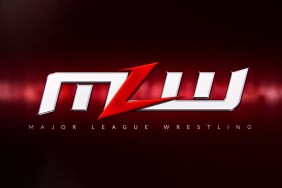Any judicial decision that is adverse to a party can be considered a “setback” to various degrees. Here is a brief explanation about why this specific decision was made, what it means for the case going forward, and more importantly, just how big of a setback this was for WWE.
THE BACKGROUND
If you’ve been following this story, you already know the basics. In a nutshell, Andrew Green was a road producer who was tasked with interviewing the Big Show following his match with Alberto Del Rio at the Royal Rumble. The Complaint alleges that Big Show initially refused to conduct this kayfabe interview, before proceeding to verbally and physically assault Green. According to Green, this assault was not a planned part of the show.
Triple H soon got involved and two additional takes of the interview were attempted. Ultimately, WWE chose to run the initial “interview” on WWE.com, while removing the profanity. In the subsequent weeks, Green allegedly made it clear to WWE officials that he wished to have zero contact with Big Show because of fear. Despite these requests, Green alleges that Big Show repeatedly attempted to make contact, with the knowledge of WWE officials. In the end, Green resigned his position, citing emotional distress from the incident.
Green and his wife subsequently filed a lawsuit in Maricopa County, Arizona, as it was the location of the Royal Rumble event. The suit alleged various damages for Big Show’s conduct, for WWE’s failure to protect him from Big Show, and for WWE’s decision to run the footage on WWE.com despite knowledge of its negative impact on Green. Green seeks damages for physical injuries, emotional distress, and loss of income. His wife seeks damages for what is known as “loss of consortium.” This essentially means that she has lost her husband’s services in many aspects such as the ability to help around the house and, yes, the ability to engage in intercourse.
If you’re interested, you can read the entire Complaint here.
WHAT WAS THIS MOST RECENT DECISION ABOUT?
In the simplest terms possible, we have state courts and we have federal courts. State courts hear issues arising under state law, such as claims for assault, battery, negligence, and intentional infliction of emotional distress. Federal Courts generally hear any claims that arise pursuant to federal statutes.
In most cases, a state court never should preside over a claim raised under federal law. As such, if a claim is brought in state court that raises both state and federal issues, the defendant has the right to remove the case to federal court. The federal court then presides over the federal issue and has discretion to hear the state claims alongside the federal claims.
In this case, although it did not appear that Andrew Green raised a federal issue in his Complaint, WWE argued that his allegations regarding the posting of the video on WWE.com involved Copyright issues. Copyright issues arise under federal law and thus only can be heard by a federal court. As such, WWE removed the case to federal court. Once in federal court, Green filed a motion to send the case back to state court.
In the most recent ruling, which you can read here, Judge Snow rejected WWE’s argument. In short, he ruled that Green was not seeking damages relating to revenue earned via the video, but was seeking damages for the emotional distress caused by the posting of the video. These issues fall under state law, not federal Copyright law.
WHAT THIS DECISION MEANS FOR WWE
WWE went out on a limb by removing this case to federal court, as their argument was a bit of a stretch at best. However, the argument was worth a shot, as having this case heard in federal, rather than state court, would have been advantageous for numerous reasons.
The federal system is much more streamlined than most state systems. All federal courts operate under a uniform set of rules with precise scheduling that must be followed by all parties. Conversely, state court rules can vary significantly from County to County, let alone from state to state.
For a company as large as WWE, uniformity and predictability are much more appealing than submitting your fate to an unknown court system in a County that likely is foreign to your attorneys. A quick look at the court documents reveals that Green sought local Arizona counsel who certainly would be familiar with this particular Court system. Conversely, WWE either has the option of utilizing its standard counsel or retaining local services. Again, familiarity with the Court system is essential.
In the end, this ruling does not mean that WWE will be unsuccessful in this matter, but it certainly is a significant victory for Green. WWE’s attempt to change courts was unlikely to be successful, but certainly was worth the risk.
This is an interesting case to follow, as Green’s claims are significant and most importantly, have the potential to have merit. As the case moves forward, I will provide further analysis of the significant milestones.
***Nothing in the preceding column is intended to be construed as constituting legal advice***
***Adam Gorzelsky is an attorney licensed to practice law in the Commonwealth of Pennsylvania***
To check out Adam’s legal perspective on Jim Ross’ pro wrestling future, CLICK HERE!








